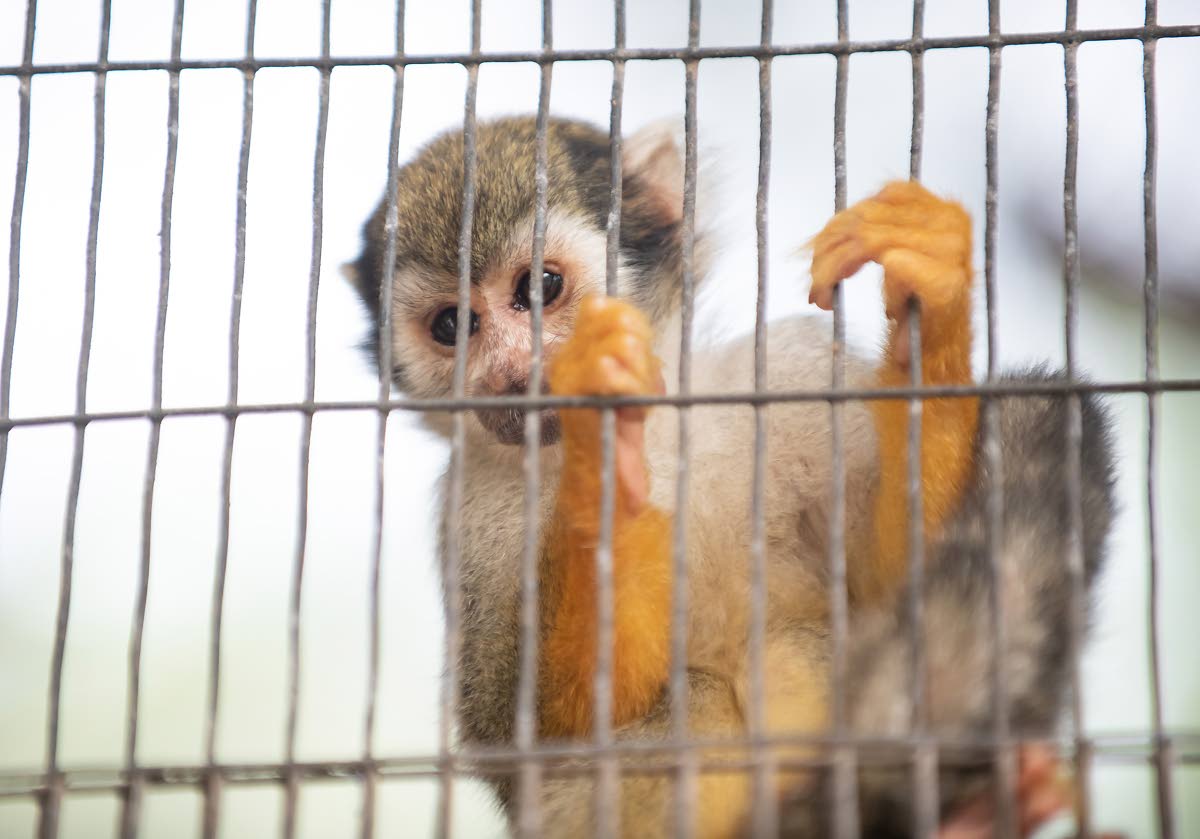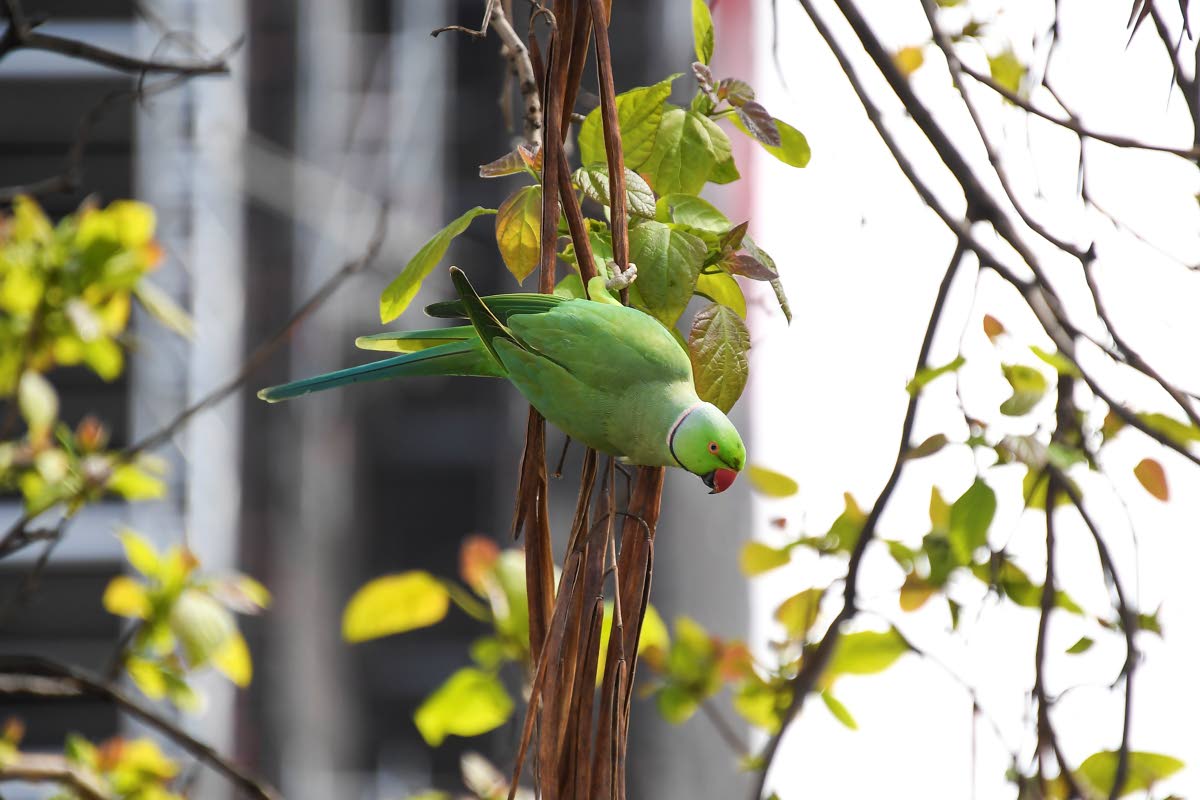Exotic animals free-for-all
Loading article...
Jamaican authorities confiscated more than 250 endangered and exotic species of animals over the last five years amid worrying signs that more locals are seeking to cash in on the global multibillion-dollar illegal wildlife trade.
A total of 274 animals, including monkeys, dogs, birds and snakes, were seized during 12 operations conducted by multiple law enforcement agencies between 2020 and this year, according to official data from the National Environment and Planning Agency (NEPA).
The NEPA is Jamaica’s environment regulatory authority.
The confiscated animals include exotic species smuggled into the country by boat and endangered species indigenous to Jamaica, experts told The Sunday Gleaner.
Though none of the smuggled animals have tested positive for any communicable diseases, some have been found with parasites that can be transmitted to either humans or other animals, the Veterinary Services Division (VSD) of the Ministry of Agriculture disclosed.
However, what is more troubling, authorities and stakeholders say, is that the number of animals that were confiscated by the police, the NEPA and VSD over the five-year period is believed to be less than 10 per cent of what entered the country over the same time span and that a majority of the smugglers face no criminal prosecution.
Possession of or trading in endangered or exotic animals are offences under Jamaica’s Wildlife Protection Act and the Endangered Species Act.
A “growing threat”
Dr Sophia Ramlal, head of the VSD, warned that illegal trade in exotic animals presents a “growing threat” to human and animal health as well as food supply in Jamaica.
“For example, illegal importation of birds can introduce the highly pathogenic Avian Influenza (HPAI) [or] ‘bird flu’ which can severely impact our poultry industry and the provision of chickens and eggs,” Ramlal said in a September 29 email in response to questions from The Sunday Gleaner.
“Similarly, illegal importation of domestic animals like cats can introduce health risks by way of pests [ticks, fleas, mites] and diseases [lyme disease, rabies etc].”
South American players
However, this appears to be of little concern to local smugglers who have forged connections mainly with South American players in the widening illegal wildlife trade and are raking in hundreds of thousands of dollars to supply an increasing demand in Jamaica for exotic and endangered species of animals, insiders disclosed.
In 2016, the United Nations Environmental Programme estimated that the illegal wildlife trade was valued at US$17 billion to US$20 billion, “making it one of the largest illegal trades by dollar value, together with guns, drugs and humans”.
“We know that there are several persons in Jamaica who love exotic animals,” Leonard Francis, executive director of the NEPA, told The Sunday Glea ner in an interview.
In one operation, conducted on June 21, 2022, a St James couple were found with 150 species of animals in their backyard.
Some of the animals – American crocodile, Jamaican parakeet – were protected locally under the Wildlife Protection Act, while the others included endangered birds and reptiles for which the couple had no licence to trade, prosecutors disclosed.
The husband pleaded guilty to counts of breaching the Endangered Species Act and was ordered to pay a fine of $500,000 for each offence or serve 30 days in prison, according to court records.
Two Honduran nationals, Luis-Harlan Haylock and Galindo Derby Reyes Wood, were sentenced on September 18, along with a Jamaican, Alvin Ashby, to time served – the nearly four months they spent in custody awaiting trial – after they pleaded guilty to 16 counts of breaching Section 18 of the Endangered Species (Protection, Conservation and Regulation of Trade) Act 2000.
Environmental watchers criticised the sentence as a “pat-on-back”.
The country’s prosecutorial authority is contemplating an appeal of the punishment, though law enforcement sources say the two Hondurans have already “disappeared”.
One of the players in the trade declined an interview with The Sunday Gleaner to discuss how it operates.
However, Damion White, a well-known conservation biologist, disclosed that deals are often brokered on the waters off Jamaica’s coastlines, sometimes after securing ‘orders’ from ‘clients’.
Brazenly advertised
on social media
Others bring the animals into the island then brazenly advertise them on social media, said White.
“So what normally happens [is that] some of the smaller boats, ranging from a yacht to a small fisherman’s boat, they go over and talk to other illegal traders who catch the animals for them and then they carry them here,” he told The Sunday Gleaner in an interview last Wednesday.
The Jamaican and the two Hondurans were apprehended by the Jamaican Coast Guard in a vessel off the coast of Whitehouse, Westmoreland.
However, their case was only one of two successful prosecutions mounted by the NEPA since 2022, the regulatory body acknowledged.
Another case is still pending before the courts.
A major stumbling block in building cases against smugglers, the NEPA said, is the reluctance of witnesses to come forward and give evidence as well as difficulty locating the boats and other equipment used in the trade.
“The major challenges that NEPA faces with prosecuting citizens are locating the animals, finding the persons involved in the trade or finding the location where these activities are taking place,” the agency explained.
The NEPA said it is now contemplating establishing a tip line for environment-related offences and urged citizens with information to come forward.
Where illegally imported animals can be safely confiscated and tested, that approach is taken, VSD explained, noting that those found to be healthy are sometimes allowed to stay in controlled environments, primarily Hope Zoo.
livern.barrett@gleanerjm.com


